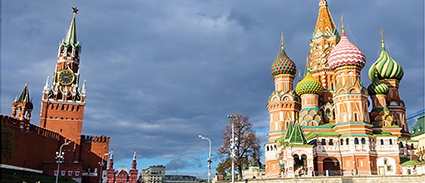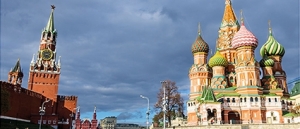10 Years on: the Geopolitics of the Georgia-Russia Conflict
August 8 marks the tenth anniversary of the 2008 Georgia-Russia War. The conflict ushered in a difficult period in West-Russia relations when Russia was suggested for expulsion from the G8 and general contacts between Europe/US and Moscow became strained.
It was missed at the time that the root of the conflict was not so much around the so-called South Ossetia, but rather in EU’s enlargement into Russia’s borderlands. The EU and NATO’s expansion into Eastern and Central Europe from the late 1990s strengthened Western influence in the former Soviet periphery while undermining the very basis of Russian power. The catalyzer of this process was the West's recognition of Kosovo's independence from Serbia, a traditional ally of Russia, in early 2008. Georgia, which under the Mikheil Saakashvili government became firmly entrenched with the West, served as the perfect setting for Russia's response.
For the EU, the conflict was a setback, as Georgia’s hopes for EU/NATO membership were further postponed. On a larger scale, the Western influence in the South Caucasus was shaken and the regional geopolitics was altered by the Russians as a result of the war.
Russia’s View
The Russian foreign policy towards Georgia is based purely on geopolitical calculations. It is not even about grabbing additional Georgian land per se, as many analysts and politicians seem to think. The stationing of Russian military forces in Abkhazia and Samachablo (South Ossetia) since 2008, and the effective occupation of those regions, still serves a number of military and security goals.
The primary reason for the August War was to finally get hold of the vitally important Roki Pass and Abkhazian seashore. Both these routes directly connect Georgia’s territories with the Russian mainland. Without control over Abkhazia and Samachablo, Moscow would have been shut off from processes in the South Caucasus.
Yet another significance of the breakaway regions for the Russians has been to keep their troops as close as possible to Tbilisi, the capital of Georgia. This has been done in order to constantly have any Georgian government under pressure by ramping up or cooling military activities in the breakaway regions. Georgia will always be interesting to Moscow due to its geographical position in the South Caucasus. And it is not only about barring Tbilisi from joining NATO or the EU. Russia’s goal historically has been to minimize the importance of the Caucasus mountain range as a barrier between the South Caucasus and the Russian mainland.
From a geopolitical perspective, an insecure, destabilized South Caucasus would be a serious problem for Moscow as it could spill over into the North Caucasus (Chechnya, Dagestan etc.). But, in a longer-term view, it would be more problematic for Moscow if the South Caucasus countries built powerful state structures and became pro-western. It is exactly for these reasons that the Russians have been threatening the road, pipeline and railway infrastructure running from east Georgia to the Black Sea shore and vital to the entire region. In Moscow’s thinking, an unstable South Caucasus full of Russian troops (as is the case in our time) is what would limit, if not entirely preclude, Georgia from joining western political or military alliances.
This would also mean that in the event of a government change in Moscow, it is very unlikely that there would be a change in Russian foreign policy towards the South Caucasus. It is in Russia’s vital interests to keep Georgia at least very weak and unstable. On the opposite side, the loss of Georgia to the West would mean a rapid decrease in Russian power with much wider ramifications for the entire former Soviet space. A “Russia-free” Georgia is a nightmare for Moscow as the Kremlin would then be less able to pressure Azerbaijan, which exports its gas and oil through Georgia. Moreover, the Caspian energy corridor would again see its relevance and Central Asian gas could reach Europe.
From the Russian perspective, a Georgia associated with the western alliances will also be a negative example for Moscow’s ally Armenia. The latter is already experiencing an ongoing quiet revolution with arrests and a fight against corruption, where Russian obligations to the country are questioned and even generally the pro-Russian foreign policy course is criticized. Moscow fears that Armenia might follow Georgia and Ukraine’s path. This scenario exists in the minds of the Kremliners and is already leading to some conclusions that trouble might be in sight for Russian influence in Armenia.
The Georgia-Russia War of 2008 was the culmination of a long process of detaching Georgia from the Russian sphere of influence. To be sure, Moscow still has a long list of tools to use to exert its power on Georgia, but the war nevertheless made hundreds of thousands of Georgians skeptical about any future cooperation with the country. The recognition of Abkhazia and the so-called South Ossetia by Moscow virtually stripped the Kremlin of the last resort to persuade Tbilisi to withhold from its pro-western-aspirations. Nowadays, many Georgians believe that the country no longer has much to lose as it has already suffered enough from its northern neighbor. This matters in geopolitics. This unanimity creates an understanding that rapprochement with Russia is almost impossible in the foreseeable future.
By Emil Avdaliani












